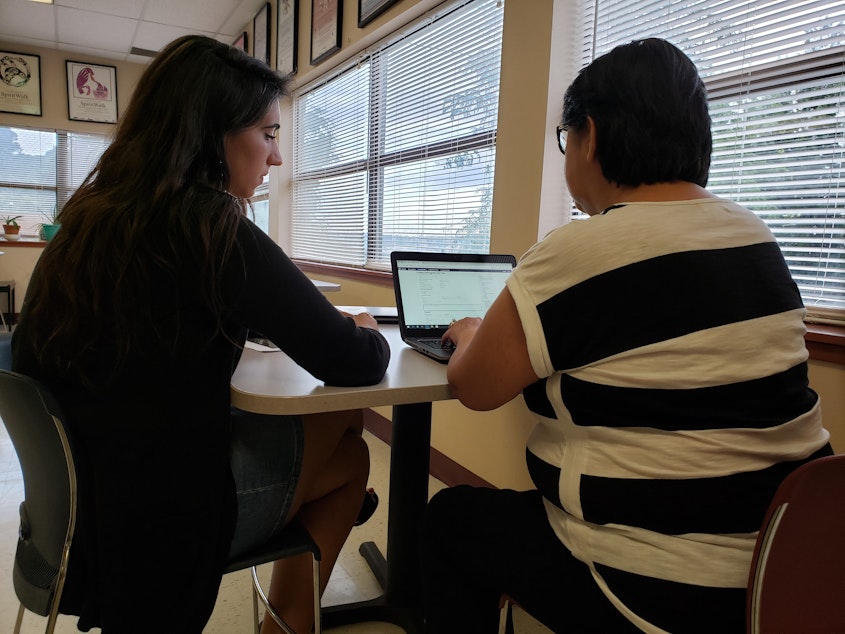'Our women are no longer invisible.' Counting missing and murdered indigenous women from the Northwest

A lone woman sat with an employee of the Urban Indian Health Institute as the employee typed information about her missing cousin into a new database.
Her cousin has been missing for 10 years. Now, finally, her name is in a federal system.
Seattle's Native community wants better data on missing and murdered indigenous women, and they're taking it on themselves to make that happen.
The Urban Indian Health Institute, the research arm of the Seattle Indian Health Board, is holding events where people can enter information about missing loved ones into the National Missing and Unidentified Persons System (NamUs), a federal database.
"We just don't have to accept that our data isn't being entered,” said Abigail Echo-Hawk with the Seattle Indian Health Board.
“This is to show people that we can do it, and we can do it ourselves, but we also need to be pushing for accountability from law enforcement," she said.
As of this writing, NamUs lists 148 missing persons cases involving American Indian or Alaska Native women.
According to a Urban Indian Health Institute report, there were more than 5,700 reports of missing indigenous women and girls in 2016.
Echo-Hawk said current databases vastly under-represent the number of missing and murdered indigenous women locally and across the US.
Over the next six months, the Indian health institute will help run events in Seattle and other areas of the country to try to help change that.
Echo-Hawk said grassroots organizations have been doing this for years, and they’re building off that work.
She said this is a call to action to communities to gather together, tell stories, and help create a more accurate representation of what’s happening.
At the first data-gathering event in Seattle Thursday, the woman with the missing cousin was the only person who showed up.
Echo-Hawk was not worried that there weren’t more people there to enter the names of loved ones, however.
She said she hopes this effort will lead to more accurate data, but it's also about building awareness and community.
“The intention is, are we building community space where our voices are no longer silent, where our women are no longer invisible,” Echo-Hawk said.
Over the heartbeat-like thrum of a drum circle practicing in the room next door, Esther Lucero, CEO of Seattle Indian Health Board, spoke of how the crisis of missing and murdered indigenous women has touched her own life.
She said her auntie was murdered. And she said there are many, many people like her who have personal stories but may not have shared them.
“We know that we can talk to anybody in our community and they have those experiences, but we have to transform that into a language that the systems can understand,” Lucero said.




